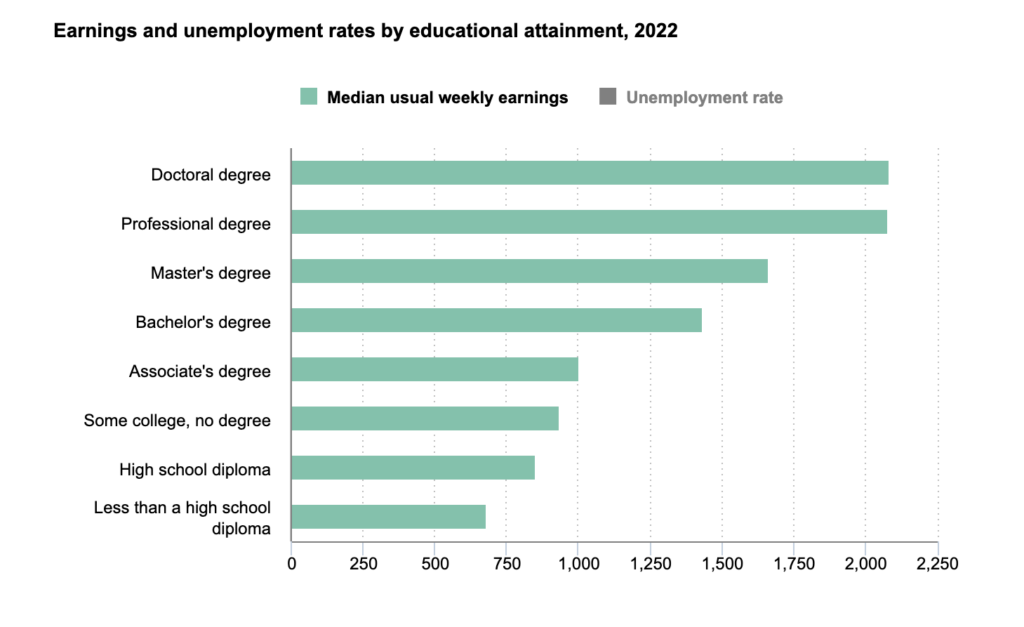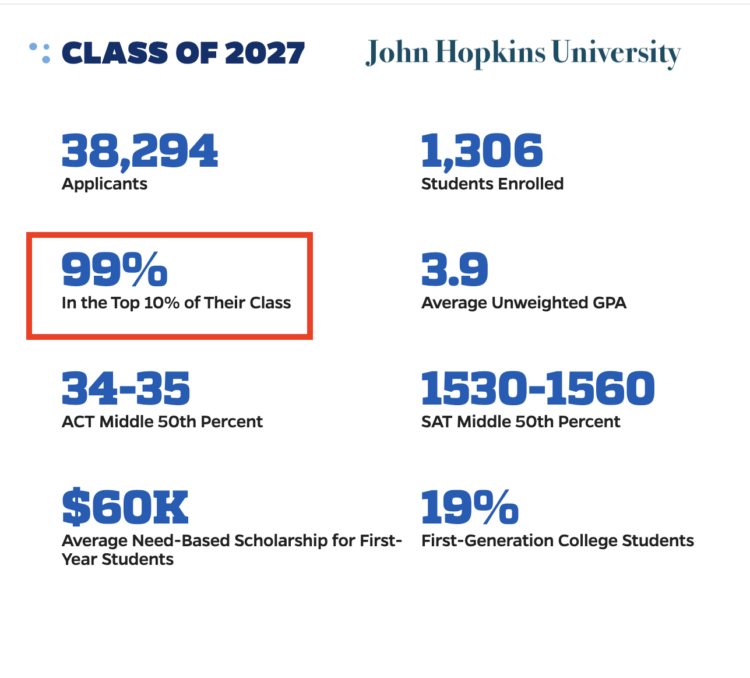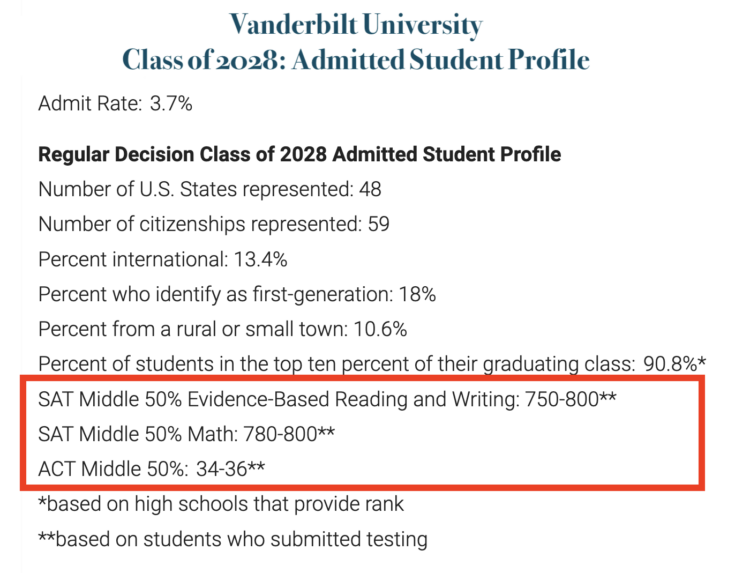Applying to college or deciding whether it's even the right choice for you can be very stressful for both students and families. The application process can seem confusing and overwhelming due to the various components involved. Students may also face pressure from their own expectations and from those of their parents.
The media's focus on the top 10 or 25 colleges from the US News & World Report’s list can also contribute to the frenzy and may overshadow the many other excellent liberal arts colleges and universities available.
However, whether you're just starting high school or are a senior, it's important to thoroughly understand the college application process. Below are some commonly asked questions that many students have about applying to college.
Why should I go to college?
There are many benefits to going to college, including personal growth, building critical thinking skills, preparation for a career and establishing a path to financial independence.
The economic advantage to going to college is clear (see chart below). College graduates enjoy higher earnings and are less likely to be unemployed when compared to students who only have a high school diploma. After you graduate college, you will also have a wider range of professional opportunities available to you.
>>RELATED POST: How to Pay for College

When should I start preparing for college?
It’s never too early to begin thinking about college. As soon as you hit high school, every grade you earn will count towards your record (and GPA) a college admissions officer will review. If you are a rising sophomore, junior or senior and you haven’t started thinking about the academic requirements of colleges, or even developing a college list, now is a good time as any.
You should start strong. Challenge yourself, commit to studying and work hard to get your best grades. If your high school offers honors and AP courses, you should take a few. Admission officers tend to look favorably upon students who have taken advantage of the opportunities available to them.
Taking honors, AP, IB and dual credit classes will ensure you are challenging yourself. In addition, it will prepare you for college level work. If for any reason you find yourself struggling in a class, get help. Many teachers are available and happy to invest extra time to tutor you. Use your summer to prepare before you take on a challenging class in the fall.
You will also need to invest time preparing for the SAT or ACT exams. Plan to take the exam once in your junior year and then once again in your senior year to get the best score possible. While over 1200 colleges and universities are going test optional for the next couple of years, due to the pandemic, this trend might not last. Don’t let the price of test prep keep you from preparing for the exams. There is free SAT preparation available through Khan Academy and free ACT preparation resources available through the official makers of the exam.
>>RELATED POST: How to Choose an Affordable College
How Important are Extracurricular Activities?
Another area of importance is your extracurricular involvement. It is essential that you show admission officers how you are engaged in your community or what you are passionate about outside of the classroom. Most high schools will offer dozens of clubs, sports teams and competitive teams.
If you are interested in a particular activity (for e.g., photography or bird watching) and your school doesn’t have a club, go ahead and start one. In most cases, you will need to get a teacher to serve as a sponsor. Most teachers will be happy to help. By the way, a paid job is considered a legitimate after-school activity. Remember to add it to your resume when applying to colleges.
Extracurricular activities can also help you discover a career path. For example, if you volunteer to write for your school newspapers, you might decide that what is something you want to pursue as a career. Whatever you do, ensure you show commitment in something you are passionate about. Jumping from one club or activity to another could give the wrong impression. Another way to discover a career is by taking an interest assessment. It will help you understand the career field and majors you are more likely to find satisfying.
Should I Apply to One of the Top colleges?
If you have the academic chops, then go for it!
Getting into an Ivy League school or another top college is highly competitive, attracting valedictorians, salutatorians, and other top students from around the world. While getting accepted to one of these prestigious institutions is challenging, it is not impossible. Early preparation and a strong commitment to building an impressive portfolio through your senior year are essential.
To stand out among thousands of highly qualified applicants, you need more than excellent grades and test scores. Demonstrating leadership, a unique talent or interest, and compelling personal circumstances are crucial. Passion for something greater than yourself is key to differentiating yourself from the crowd.
For example, Johns Hopkins University, a highly ranked institution, accepts less than 7% of its applicants and enrolls 99% of its students from the top 10% of their high school graduating class. This university, like many others, is currently test-optional.

Highly selective colleges boast diverse student bodies, including valedictorians, star athletes, innovators, creative types, immigrants, and students from varied socioeconomic backgrounds. Many first-generation students thrive in these environments. If you are a first-generation student with strong academics, don’t shy away from applying to these colleges because you think you might not fit in or find it too expensive. Ironically, many highly selective colleges are known for their generosity, with most students never paying full price.
>>RELATED POST: 17 Colleges That Give The Most Financial Aid
In general, whether or not you aim for Ivy League schools, strive to challenge yourself academically and contribute to your community for the right reason. Aim high in your college choices, including a few safety schools on your list, while recognizing that there are many excellent colleges and universities that can offer you a great education and prepare you for a successful life and career.
Do I need to have a major to apply to college?
It is not essential to have a major or career in mind before entering college. In most cases, you will be able to wait until your second year before declaring a major. Some students start out with one major and later develop different interests over the course of their college career. In fact, most college students will change their major several times before graduation.
However, while it is possible to select a major or change your major after you arrive on a college campus, you should ensure you do it sooner rather than later. Waiting until your third year to change your major could mean additional time spent in college, which in turn means additional costs.
Having an idea of the field you want to pursue before college has some advantages. Some majors, for e.g., anything in the STEM field, might require more advance Math and Science classes so knowing early about these options while in high school will help you prepare to be a competitive applicant for these programs.
How can I Find a Major?
There are various tools available to help you explore how your current interests and strengths can lead to a specific major or career. You can also find out about the expected job openings in the next 10+ years and the average salaries for various careers.
Two important tools are the Department of Labor’s O*NET Interest Profiler and Career One Stop. The Department of Labor's assessment takes less than 30 minutes to complete. You will answer about thirty (30) questions before receiving a list of career options that could be a good fit for you.
You can also take an assessment on Career One Stop and watch videos about the expected tasks in specific jobs.
Learning about a career you like may help you decide on a major. However, if you're still unsure, don't worry. Many people end up changing their majors several times before they graduate. Taking a specific class, job or internship in college might spark your interest in a particular field.
>>RELATED POST: How to Use The Net Price Calculator
How many colleges should I apply to?
You do not need to apply to more than six to twelve colleges, depending on your circumstances. At a minimum, you should apply to four colleges. Your list should have two to four safety colleges, two to four match colleges, and two to four reach colleges. When selecting a college, you should take into account admission requirements, affordability, location, programs or majors offered, enrollment size, class size, graduation rate and other factors that are important to you.
The 2018 college admissions scandal involving parents paying hundreds of thousands of dollars to get their students into highly selective colleges (for e.g., USC, Yale and University of Texas and Yale) highlights the competitiveness of the college admissions process.
However, most colleges accept the majority of applicants, but sadly the media tends to focus on the ones that accept less than 10%. This admissions frenzy has given way to more angst among college applicants.
As a result, the average student is applying to a larger number of colleges. Not so long ago, I read a news article of a student who was accepted to 39 colleges. While this was a sensational story for the media, and while the student probably had the best of intentions, this is not something 99.9% of college counselors would ever recommend.
Instead, most students should have a list of no more than twelve colleges. For students with financial need, it is important to take the time to find generous colleges. Take a look at the average aid a student from a family with similar income has received from the colleges on your list. As a last resort, reach out to the financial aid officer if you need very specific questions answered.
To research colleges by affordability, location, programs or majors offered, enrollment size, etc., check out the College Scorecard website (courtesy of the U.S. Department of Education’s College Affordability and Transparency Center). You will also find data on the average financial aid award by income levels on this website.
Do I need extracurricular activities to get into college?
Although your grades in high school are one of the most important factors in a college’s decision to accept or reject an applicant, your extracurricular activities matter. Colleges are very interested in students who have a love of learning and are making an impact in their community. After-school activities can allow you to build leadership, team work, problem solving skills and strengthen a talent.
In selecting an after-school activity, think quality over quantity. Try to select something you are genuinely interested in doing or volunteering for a cause you are very passionate about. While doing this, it is important to show some consistency in your efforts and some growth in your level of responsibilities. For example, if you start out as a member of a club in 9th grade, consider taking on a more responsible position the following year. Colleges will gauge your character and leadership based on your commitment to a cause or activity.
Colleges admission officers understand that some students may have to work to help out their families or babysit their siblings after school. Remember to list all of your activities, even if you are doing them from home.
Strong academic scores and a unique talent or exceptional leadership could let you rise to the top of the application pile. Be thoughtful about where you spend your time. Follow your passion, but also be strategic and try to compete for leadership opportunities if you are a member of a club. And, remember, if your family circumstances make it impossible to participate in after-school activities, you should not worry.
What Factors Do Colleges Consider?
Based on research by the National Association of College Admission Counselors (NACAC), most colleges place most emphasis on the following by rank:

As the table indicates, colleges place the most emphasis on your grades in regular and college prep courses; admission test scores; and your essay. The other items on the list are important. However, the level of importance will vary based on the selectivity and type of college (private or public). For e.g., a few private colleges will consider “demonstrated interest” — any documented interest you have shown in the school – for e.g., a campus visit or interaction with the admissions rep.
How you contribute to your community through extracurricular activities is another important factor.
When should I take the ACT or SAT?
About 75% of all colleges are now test optional. Although you do not have to submit a test score, it would not hurt to take a practice test to help decide which option is best for you. Many students are still testing to ensure they are a very competitive applicant for admission at colleges, especially the highly selective ones.
Before COVID, I would recommended students take the SAT or ACT at least once as a junior, then once again in their senior year to see if they get a better score. However, I would now say to take a practice test at least once to get a gauge on if you test well enough to take the official test and submit your score.
Both the SAT and the ACT offer preliminary exams that will help you gauge where you are in terms of college readiness and help you prepare for the actual exams. The results from these exams highlight your strengths and weaknesses allowing you to address any academic gaps before test day and graduation.
There are free test prep resources available online. The College Board, official makers of the SAT, offers free preparation through Khan Academy; and ACT offers free ACT preparation through its official website.
Special Note: Due to the COVID-19 pandemic, many colleges are waiving the ACT and SAT requirements for the next few college application cycles. Please check with each college on your list for the most up-to-date guideline.
>>RELATED POST: Saving for College - Understanding 529 Plans & Benefits
What Test Scores Do I Need to Get Into College?
Since COVID, more than 75% of all colleges, including most of the Ivy League schools, are test optional for the high school class of 2023. Beyond that, we will have to wait and see what path most will take.
Test optional means you do not have to submit ACT or SAT test scores, but you can. This means more colleges are now taking a more holistic approach to the application process and paying closer attention to student's high school performance and their personal circumstances.
However, If you test well and your scores place you in the upper percentile at the college on your list, it wouldn't hurt to submit your test scores. Thankfully, this policy now means that students who do not test well will not be penalized. Instead, they can now be assessed on factors that are better predictors of success in college like high school classes and grades.
If you are planning to submit test scores, take a look at the test score range for a typical successful applicant at the school. Although many of these schools are now test optional, College Scorecard still has the data from previous years.
Remember, most colleges will provide the SAT and ACT scores for the middle 50% of admitted students. This means that 25% of students had higher scores and 25% had lower scores. For example, Vanderbilt University listed the test scores of admitted students in the middle 50th percentile for the Class of 2028 as SAT (Reading & Writing) 750-800, SAT (Math) 780-800, and ACT 34-36.
Below is a brief summary of the results of Vanderbilt's Class of 2028 Student Profile. Vanderbilt University is currently test-optional.

How do I apply to college?
Senior year is college application time! Although you will technically start preparing for this in the summer leading up to your senior year.
There are many pieces that are included as part of your overall college application. Some of this information will be sent directly from your high school, others you have to submit on your own. Check with your high school counselor and the college to learn when and how each piece of document should be submitted.
You should consider creating an Excel spreadsheet to track your applications and deadlines.
The most important pieces you will have to submit are:
- Transcripts with your grades (often includes AP scores)
- ACT, SAT, or test optional
- AP scores
- College credits, if applicable
- Letters of recommendations – from teachers and counselor
- Essays
- Activity Sheet or Resume
Keep in mind, not every college will require the same type of information, so read the college application requirements carefully. The highly selective colleges tend to require more supporting documents.
Four of the most widely used college applications are:
- Common Black Colleges Application
- The Coalition For College’s Application
- The Common Application
- Universal College Application
- State specific applications (for e.g., students in Texas can use ApplyTexas for all state colleges and a few private colleges)
You will need to complete one or more of the above listed applications depending on where you are applying. Check the college’s website for specific instructions.
Remember, some colleges place different weight on different components of your application, so it's important to talk to the admissions reps, check the school's website, and taslk to your high school counselor. If you are a rising junior or senior and you haven't yet met with your high school counselor, you should.
>>RELATED POST: 12 Small Tuition-Free Colleges You Should Know
Should I apply for Early Decision?
Early Decision can improve your odds of admission into a college. In some cases, colleges fill almost 50% of their class from ED, which also gives students in some cases a higher chance of getting into the program. Over 400 colleges offer early decision or some other form of early action.
The Early Decision (ED) option is binding and often has a November 1 deadline. If admitted, students are expected to attend. Part of your application will require an Early Decision agreement from you and your counselor, and your counselor will only be able to sign one such agreement. You can apply to other colleges regular decision, but often cannot apply EA restrictive. Therefore, you should only apply ED if you are very serious about attending the college and if you think you can afford it. If your financial circumstances change after you apply or if the college did not offer you the financial aid package you expected, then those are grounds for breaking your commitment.
Here are some of the other application options that are available. Please check with each college’s policy as it could vary from college to college:
Regular Decision is the standard application deadline for a college. Many colleges have deadlines between late November and early January.
Early Action: This is a non-binding option and students apply early and learn of the admission decision early, generally around late November or early December.
Early Action Restrictive | Single Choice Early Action: This a like early action, but with some restrictions – often limiting you from applying Early Decision or Early Action to other schools.
How can I apply for financial aid?
You will need to apply for financial aid during your senior year of high school, around the same time you are applying for college.
Financial aid can come in the form of grants, loans, scholarships, and work-study programs. It is primarily provided by the federal government, state government, and colleges. Each year, students must fill out the FAFSA, CSS PROFILE, or other financial aid application to determine their eligibility. Both the FAFSA and the CSS PROFILE will be available on October 1 of your senior year.
Financial aid is money you receive for college. It can be free, such as scholarships and grants, or you may have to pay it back later, like loans. Some aid is given out on a first-come, first-served basis, so applying early is important. Once the money runs out, you can't get that type of aid anymore.
RELATED: 17 Colleges That Give The Most Financial Aid
Some colleges may have their own financial aid forms that you need to complete. Check with the college’s Financial Aid Office or website to find out which forms you must submit.
If you are admitted to the college, you will receive a financial aid award at, or around, the same time you receive your letter of acceptance. Take time to compare all financial aid offers to make sure you understand the amounts in loans versus grants or scholarships. The award letters are not standard across colleges, so the information presented can be rather confusing and even misleading.
RELATED: How To Review Your Financial Aid Award
Final Thoughts
It's a good idea to begin planning for college as early as 9th grade (well ahead of senior year) to understand the college requirements and costs. However, most of this information will apply wherever you are in the process. The most important thing to remember is to think carefully about your college list to ensure you are targeting colleges that are a good fit for you—academically, socially, and financially.



